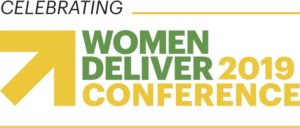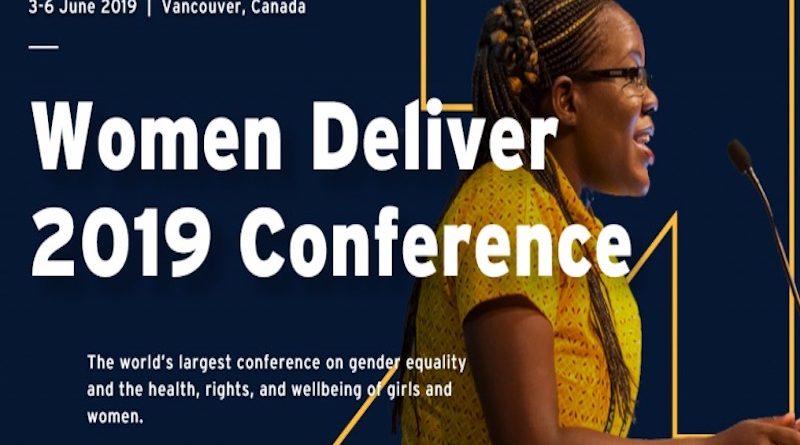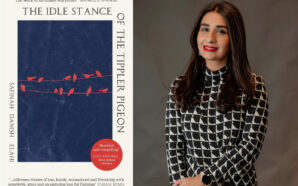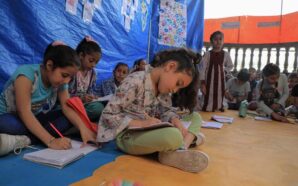In 2007, a groundbreaking organization, Women Deliver, was founded that advocated for gender equality and health and rights of women and girls all over the world. Founded by Jill Sheffield, a staunch advocate of maternal, reproductive and sexual health and also a founder of Family Care International.
 Women’s Deliver’s very first conference was held in London in October 2007 and participants included advocates, researchers, policymakers as well as global leader from 115 countries. With nearly 2000 participants, the conference marked the 20thanniversary of the Safe Motherhood Initiative that supported investment in maternal and newborn health. With a gap of almost three years, the organization held its second international conference in Washington DC with 146 participating countries and nearly 3500 attendees. “The Conference allowed organizations and stakeholders the opportunity to share best-practices and lessons learn and to reinvigorate the fight for better health for girls and women,” states a Wikipedia page on the organization.
Women’s Deliver’s very first conference was held in London in October 2007 and participants included advocates, researchers, policymakers as well as global leader from 115 countries. With nearly 2000 participants, the conference marked the 20thanniversary of the Safe Motherhood Initiative that supported investment in maternal and newborn health. With a gap of almost three years, the organization held its second international conference in Washington DC with 146 participating countries and nearly 3500 attendees. “The Conference allowed organizations and stakeholders the opportunity to share best-practices and lessons learn and to reinvigorate the fight for better health for girls and women,” states a Wikipedia page on the organization.
According to Women Deliver: “As a leading global advocate for the health, rights, and wellbeing of girls and women, Women Deliver brings together diverse voices and intereststo drive progress for gender equality, including a strong focus on maternal, sexual, and reproductive health and rights. We build capacity, share solutions, and forge partnerships, together creating coalitions, communication, and action that spark political commitment and investment in girls and women.”
WD Info Sheet:
Women Deliver operates across four focus areas to advance progress for girls’ and women’s health, rights, and wellbeing:
We Catalyze Action
- Galvanize advocates and mobilize influencers, including ministers, corporate leaders, academics, health workers, journalists, UN agencies, non-governmental organizations, and young people to promote gender equality and the health, rights, and wellbeing of girls and women.
- Apply a gender lens to SDG implementation and increase investments – political, programmatic, and financial – for girls and women.
- Shape the global conversation on youth engagement through normative work and our award-winning Young Leaders Program. We’ve provided 400 young people from 108 countries with the tools, training, opportunities, and resources to serve as impactful advocates, with 300 more Young Leaders scheduled to join the program in early 2018.
- Leverage our global platforms – both physical and virtual – to engage a global audience, shine a light on action and proven solutions, and track and measure progress.
We Communicate
- Translate evidence, solutions, and policy recommendations into user-friendly infographics, policy briefs, and other communication products for advocates and decision-makers.
- Engage media to influence public discourse around girls and women – globally and in selected countries.
- Serve as a formal advisor and informal ambassador for gender equality, maternal health, sexual and reproductive health and rights, and the investment case for girls and women at global events and high-level gatherings.
- Reach new audiences online via robust social media platforms and a website that serves as a digital destination for news, data, information, stories, and solutions regarding the health, rights, and wellbeing of girls and women.
We Build Community
- Cultivate a Speakers’ Bureau to elevate youth voices globally by identifying national and global platforms for Young Leaders to strongly contribute to the conversation and share their expertise and experiences.
- Equip advocates through virtual learning and resources, including the Digital University, master classes, webinars, and online advocacy toolkits.
- Conduct media training to impact national-level journalists and emerging talent.
- Fund seed and continuation grants for in-county advocacy and communications to advance the health, rights, and wellbeing of girls, women, and young people.
We Convene
- Host the world’s largest conference on gender equality and the health, rights, and wellbeing of girls and women. Identify new strategies and technologies that will enhance the interactivity and impact of the Women Deliver 2019 Conference, taking place 3-6 June in Vancouver, Canada.
- Break down silos to fuel multi-sector, multi-issue collaboration and action on the implementation of the SDGs, in part through the Deliver for Good campaign and the Equal Measures 2030 initiative, ensuring that girls and women become and remain central to the agendas of countries throughout the world.
- Chair regional meetings of Young Leaders to foster collaboration, share ideas and lessons-learned, and develop strategies and roadmaps for action.
- Advise and build partnerships with the private sector to advance gender equality and the health, rights, and wellbeing of girls and women through investments in the value chain, marketplace, and beyond.
Women Deliver’s 2019 commences on June 3rdtill 6thand can also be attended virtually. Register for WDLive, the organization’s Virtual Conference where the four-day program will be streamed exclusively for online audience via the website as well as Facebook. Join the social media conversation using #WD2019.
The Women Deliver 2019 Conference will focus on power, and how it can drive – or hinder – progress and change.
Katja Iversen is the President/CEO of Women Deliver – a leading global advocate for investment in gender equality and the health, rights, and wellbeing of girls and women, with a specific focus on maternal, sexual and reproductive health and rights. Iversen, an internationally recognized expert on development, advocacy and communications, has more than 25 years of experience working in NGOs, corporates and United Nation agencies. Previously, she held the position as Chief of Strategic Communication and Public Advocacy with UNICEF, a position she came to after almost six years of leading the team responsible for advocacy and communication on reproductive health with UNFPA. She holds a master’s degree in communications, bachelor's degree in public administration and certificates in management, conflict resolution, and international development. Iversen has worked in global development for more than 20 years and has an extensive network within the UN, development communities, and global media. She has counseled and trained multiple Fortune 500 executives on cross cultural management and cross cultural communication. She is a member of the G7 Gender Equality Council, the Unilever Sustainability Advisory Council, the MIT Women & Technology Solve Leadership Group, and an International Gender Champion. Iversen was recently nominated to Apolitical’s Top 100 Most Influential People in Gender Policy. She is also a sought lecturer and speaker.
INFO, image Credits: Women Deliver, Wikipedia











